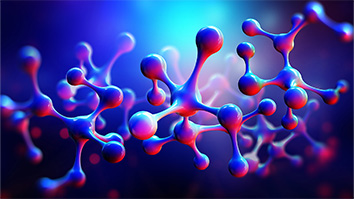Citation
McCormack AL, Di Monte DA. Enhanced alpha-synuclein expression in human neurodegenerative diseases: pathogenetic and therapeutic implications. Curr Protein Pept Sci. 2009 Oct;10(5):476-82. doi: 10.2174/138920309789351912. PMID: 19538156.
Abstract
When caused by multiplication mutations of its gene, increased expression of alpha-synuclein is associated with familial parkinsonism. Here we discuss the possibility that other mechanisms of alpha-synuclein elevation contribute to the pathogenesis of idiopathic, sporadic Parkinson’s disease and other human synucleinopathies. Environmental (e.g. toxic exposures) and genetic (e.g. gene polymorphisms) risk factors, on the background of normal aging, are likely to enhance vulnerability to neurodegenerative processes. Current evidence suggests that an increased level of neuronal alpha-synuclein may represent a key pathogenetic event common to these risk factors. Higher protein expression could underlie a gain of toxic properties of alpha-synuclein (e.g. enhanced tendency to aggregate) that predispose and/or directly contribute to neuronal demise. An important corollary to this latter concept is that a promising therapeutic approach against Parkinson’s and other neurodegenerative diseases is to prevent alpha-synuclein accumulation. Means to achieve this include (i) the use of RNA interference to suppress alpha-synuclein expression, (ii) the induction of neuronal pathways of protein degradation (e.g. macroautophagy) involved in alpha-synuclein clearance, and (iii) the development of anti-aggregation agents counteracting the formation of toxic oligomeric or fibrillar forms of the protein.


